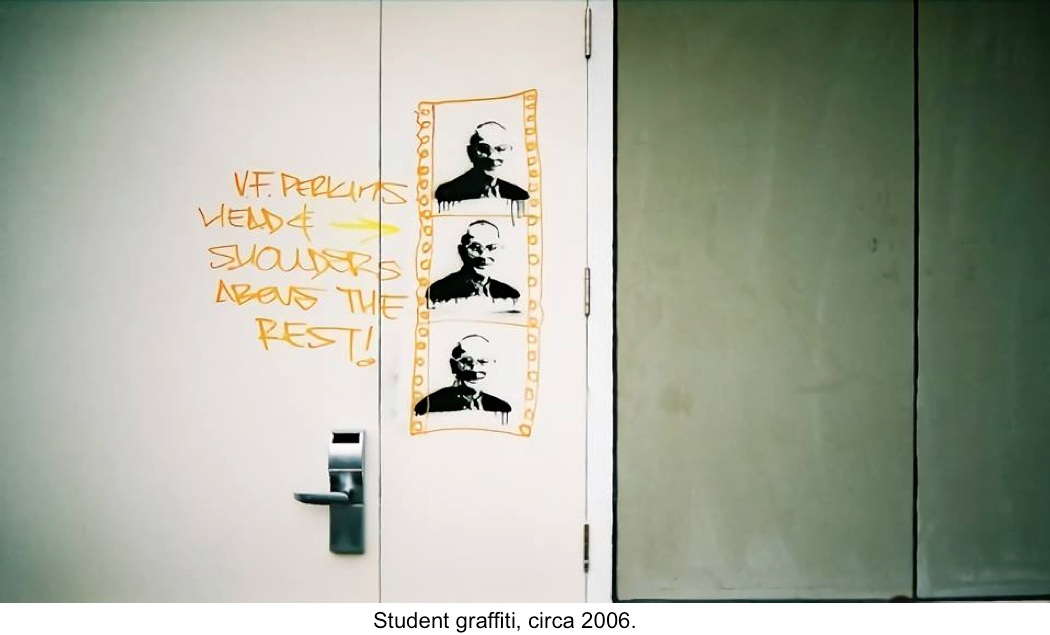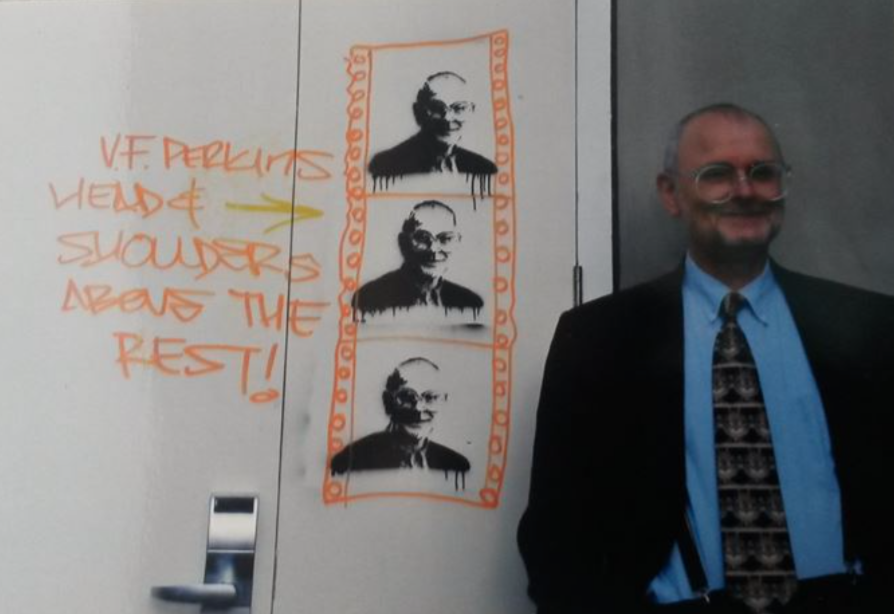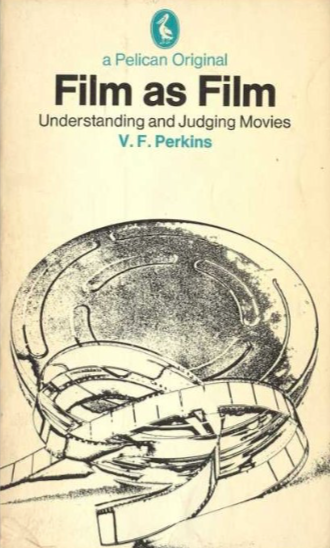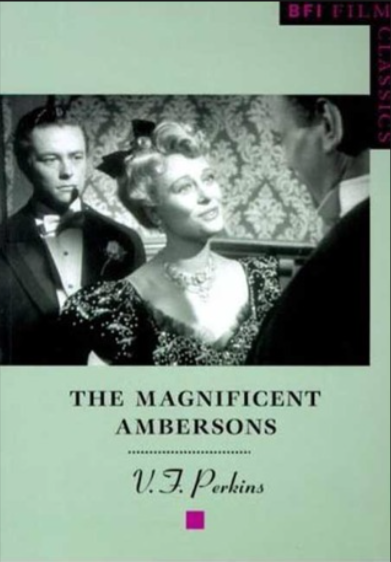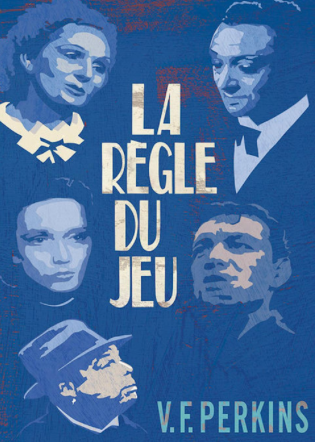V. F. Perkins Tribute
Introduction - Alastair Phillips, Head of Department of Film and Television Studies
Victor Perkins and the beginnings of our department - Ed Gallafent
Since his death there have been many tributes to Victor Perkins as a scholar and a teacher, but it is appropriate here to look back to one of his outstanding achievements as a colleague, as an organizer, and as a man of vision. I mean the creation of the academic structure that was to develop into the Department of Film and Television Studies as we now know it.
If we want a starting point, I can offer an article by the seminal film critic Robin Wood, at that time working as the single lecturer in Film Studies at Warwick, in a long forgotten mimeographed journal – University Opinion No 4, published in May 1974. In that article Robin looked forward to the future, when the nearly finished Arts Centre might possibly even have 35mm projection, and a time when the one Film Studies option that he then taught might grow into a half-degree, and ‘eventually a full degree’.
It was to happen, but it took Victor to make it happen. After Robin had left Warwick to take a post in Canada, Victor was appointed by the university with the specific remit of exploring the possibility of growing the single option into, initially, the half-degree that Robin had foreseen. The long-term plan was to develop an independent department where film was a discipline in its own right, rather than being taught as part of another course, such as Modern Languages or History, as was generally the case in the U.K. at that time. It was an achievement that demanded the ability to bring together a disparate group of colleagues to create a course that would have intellectual credibility but also – for these were not times when the financial climate of the faculty was particularly sunny – it would have to draw substantially on existing teaching resources. The proposal promoted by Victor was a degree in Film and Literature, in which roughly half of the modules would be in film, and the rest would be taught by colleagues in different departments in the faculty.
The formidable nature of the task can be gauged by looking at the membership of the original working party, which included colleagues from eight different subject areas. Victor’s characteristically accessible approach to the issues can be seen in one sentence from his original memo inviting them to form a Working Committee : ‘There are a number of points on which I quite urgently need advice so I shall be glad if the first meeting can be arranged soon.’
That sentence was written in October 1978. After a lot of advice and discussion, the degree that emerged in 1979 was taught by colleagues in Comparative Literature, English, French and German. Students would be reading, among others, Ionesco and James, Proust and Camus, Kafka and Brecht, Cervantes and George Eliot. Their viewing would include films directed by Ray, Bunuel, Rossellini and Pasolini, Chabrol and Godard, Ford, Max Ophuls, Welles. That is, when they had graduated to moving images: the first year began with an exercise in the analysis of still images, the exacting exploration of the meanings of photographs fondly remembered by generations of Victor’s students as one of the pivotal moments in their education.
Choice Moments from Ian Garwood on Vimeo.
Victor was appointed as the first chairman of the Joint School of Film and Literature - the administrative structure that preceded the current departmental structure - and the degree was a success from its initial year. What made it more than a loose association of various modules was Victor’s insistence on the principles that lay behind it. This is Victor’s introductory paragraph to the document presented to the faculty when the degree was considered and accepted in February 1979:
In combining and correlating the studies of Literature and Film the degree is designed both to stress the particularity of works and disciplines and to explore the levels of generality or abstraction at which concepts and approaches may be applicable across works, forms or media. The course assumes that understandings of specific works are governed by concepts (articulated or not) but also that conceptual or procedural issues present themselves forcefully insofar as they are recognized in their impact on the making and reception of concrete works and particular meanings. In its movement between the general and the specific the degree will thus treat the question “how to read” (a book or a film) as one involving both an informed and developed sensitivity and a principled choice of method(s). The degree, and its students, will be successful to the extent that their modes of analysis, comparison and abstraction exert a mutual discipline.
Reading these words thirty seven years later, they convey both the coherence of Victor’s vision and the stimulating and encouraging effect he had on others, including of course other members of staff both in Film Studies and elsewhere. This beginning led to the department of today, with both the full degree that Robin Wood had foreseen, and the distinguished research culture that has been acknowledged in successive national assessment exercises.
But the greatest tribute to Victor must be his effect on the students who followed the degree that he had invented, who benefitted from the ‘informed and developed sensitivity’ that he sought to create in his teaching, and the principled intellectual discipline on which he firmly insisted.

